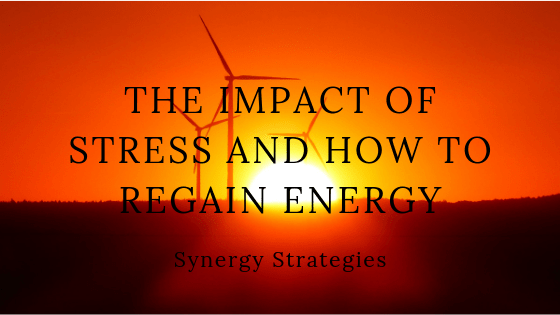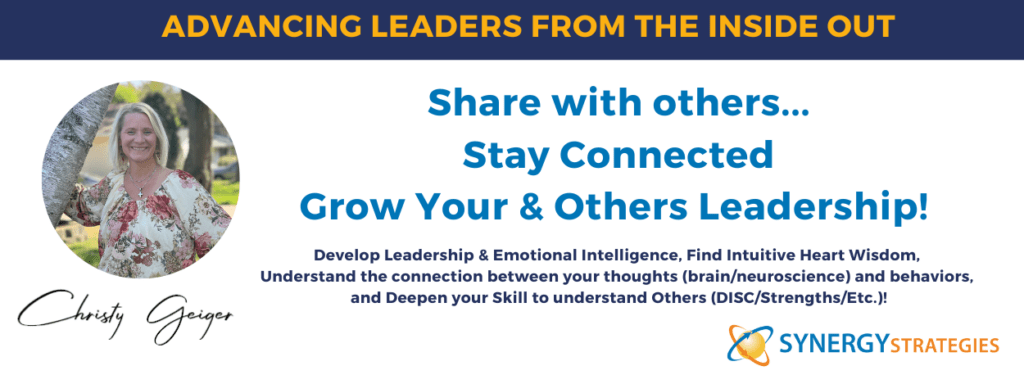When everything fell apart ….
When everything fell apart in my career and personal life, I could no longer argue. My life was out of whack, I was out of balance and the world was screaming to me I needed to get it together.
I had the perfect life. I had been accepted into Stanford right out of high school. I was an active part of the business and incubator groups. I met leaders in the technology industry and was welcomed to the table for my new ideas and young energy. After finishing my MBA, I was offered a position at a local database company. The company was growing and while I started at the “bottom”, I advanced quickly. I met my wife at the company. She was a rock star. She was helpful, kind, and brilliant. We got married and she stayed home to raise our first child. We were both on board with this and my recent promotions afforded us the income to be able to live in the Bay Area on one income. Our health was good, we had tons of energy for adventures and weekend getaways. We enjoyed each other and our time with friends. Life balance seemed like a problem for people who just didn’t get it or who didn’t know how to really be successful. We enjoyed this season for several years. We had three children and even with the chaos of babies and diapers, it didn’t ruin the joy in our home. I continued to climb the corporate ladder even as the demands at work increased.
My new position required more travel and the work I needed to bring home with me increased. My wife complained that I was always looking at my phone, even though I did it when no one was talking to me or needing me. I was gone into the weekend so our fun family trips came to an end. The kids were getting older and starting sports and my wife felt frustrated that I could not make it a priority to be at their games, even on Saturday AM. I worked hard to go whenever I could. What was I supposed to do? My job fed our family?
It felt annoying that no matter how hard I tried to balance home and work I was losing in both places. They both said I was “not present” and seemed “distracted”. My work was slipping in quality and my ideas were old and not as innovative as they once were. I was trying so hard to keep up with the other young guys, but I felt that even though I was barely in my 40s, my ability to juggle it all was challenged. I used to have so much energy and my fingers had the Midas touch. Now I felt overweight, tired, overwhelmed, stressed and just hanging on to my position with the young guys breathing down my neck. Where did I go wrong? Where did I lose my edge? I was the same guy I was 10 years ago but something has hijacked my energy, mind, and ability! I was confused. From being one of the company’s top performers to the torrential slide that had occurred in the last few years was unexplainable.
The stress was building and I started to drink more when I was on trips and at home. It just helped to take the edge off. It didn’t seem like a big deal, but it was the only way I could relax. I would get home late. I would watch TV to wind down and drink and eat junk. My wife and I were not going to bed together anymore; I stayed up late. In the AM I didn’t have the energy to get up and work out as I had. I had work to do on the weekends anyway. I felt myself slipping into some kind of depression. I was starting to feel apathetic and distant from everyone in life who seemed to feel free to unleash their relentless and never-ending demands. While I felt in control of my life, I felt very out of control of my life. I felt I was on a conveyor belt without choices, rather a pawn that had to deal with the tough knocks that came each day (demands, criticisms, never-ending tasks, questions, challenges, etc.). I felt I was dealing with it though. It felt like a battle happening in my heart and mind, but I thought I had it masked pretty well. Yes, I was getting frustrated more often, forgetting a few things, missing a few deadlines but compared to the number of tasks on my list it wasn’t that many. Fortunately, because I had worked my way into Sr. leadership, my assistant covered for me at work and my wife covered for me at home. They were both great … but it was the least they could do compared to all I was doing.
Then it happened. I got a call from HR. “A sexual harassment claim has been filed against you by one of our major clients. They are leaving the firm and pressing charges against you.” the HR Director informed me as my body went numb and my head spun. I tried to recall what happened. I recounted the last trip to the client site and how we had worked late. We all went out for drinks after and I had quite a few, but I also had a healthy tolerance and the weight to take quite a bit. We had a good time and were all joking around. The account manager in the group was hot; she had been hitting on me, but did I respond? She is the one that wore a plunging neckline and frequently leaned into me. She was so desperate for attention and flirted with everyone. What did I do? I quickly tried to recount. Was it obvious I was looking at her? Did something happen that night?
She continued, “This is a big deal. You know we have zero tolerance for harassment. Your position is being suspended immediately while this is investigated, we will contact you when we understand better if you can come back or not.” I stared at her and disputed, “What are you going to do with all the accounts and projects I am leading? You can’t just suspend me!” She sternly looked at me, showing her bias that she believed I was guilty, “We will be fine.”
Wow. What was I going to tell my wife? She would be furious. She was already unhappy and threatened divorce because she didn’t feel I loved her or the kids. Now a sexual harassment claim? Would I lose my job over this? I felt like a 5-year-old boy, numb.
How we handle stress is a decision. One path is a slippery slide and the other is narrow and difficult to implement but takes us to better places.
This example is common in America today. Pressure. Tasks. Stress. Drinking. Eating. Lack of Fitness. Strained relationships. Distraction. Anger. Pornography. Binge eating, TV, etc. These are all common coping outlets but don’t lead to better places, just temporary relief or numbing. The short-term relief leads to a greater need and more bad choices. Finally, a big slip happens and then everything falls apart.
So how does one prevent this?
- Be self-reflective. Acknowledge your role and part rather than excusing it.
- Don’t be a blamer. Take responsibility.
- Make an action plan. What is not working and what are you going to do about it?
- Exit the cycle. If you know something is broken, invest the time to fix it, especially in relationships.
Realize energy management is often at play. We start to lose in one of four areas: mental, spiritual (passion and purpose), emotional or physical. If that is not addressed and restored it will tip into another area until all four areas are empty and disengaged.
Take time each day to invest in healthy choices that build your positive energy vs. stress.
- Mental – Think positive and proactive thoughts versus being caught in overwhelm. Have a plan to deal with stress. Delegate. Have a counselor or coach to help work through where you feel stuck. Create systems and strategies to help you move quickly and efficiently. Do daily habits to clear your mind so you can focus and center your mind on clear goals and objectives. Keep to-do lists and a clean desk so you can operate effectively.
- Spiritual – Know your purpose and direction. Know WHY you are getting up every day and find joy and excitement for your life. Practice gratitude for your life. Connect with a greater way of being in the world vs just a human doing.
- Emotional – Work on your Emotional Intelligence and watch for ways that show immaturity. Be kind, loving, patient, helpful, a servant and others focused. Notice when your emotions capsize you and be quick to address things that sabotage you or trigger you. Realize your triggers and work on them daily.
- Physical – Get plenty of rest. Drink water (vs. alcohol). Work out and exercise. Stay fit and eat well.
The challenge for most people is the feeling there is NO TIME to invest in such things. They read the list and feel more pressure to perform and achieve. They feel it is impossible. That is a lie and a trick of the “easy path”. There is a performance institute in Florida that has worked for years with executives, top-performing athletes, and sales professionals. They study individuals who were high performers at one point, but at some point, their performance tanked even though nothing really changed that should be killing their performance – other than stress and the pressures and demands of life. The institute works with these performers to regain balance in the four areas of mental, spiritual (their spiritual is not religious, but rather internal motivation and significance), emotional, and physical. Leaders who attend this program are able to assess their engagement at each level and develop a plan to increase their engagement in each of the four areas, starting with one area.
The challenge is the same for any human. We all have stress and pressure. Most of us start out designing our lives the way we desire and start putting together the “toll house cookie” recipe for a successful life (blooming career, romantic relationship, home, kids, pets, hobbies, friends, etc.). Life gets momentum and we follow it. But then we find ourselves off-center, out of control, kind of a victim of our life and effort to have it all and do it all.
The fact is we have a choice. While the slide can seem innocent, fun, and harmless the spiral is downward and more challenging to pull out of the lower you get. The potential for enjoying your life and thriving is high when you intentionally take the time to design and live a healthy life with healthy choices. It doesn’t mean that you can suddenly do everything – but it does mean that you are more emotionally calm and centered. You are mentally able to process, be proactive and discerning of priorities, and delegate appropriately. It means you have a passion for the initiatives you take on and you physically have the energy to do it. It is not simple or easy. It is not natural. It takes dedication and a decision to design and do these activities. It is worth it. You matter. Your work matters. Your life matters.
NOTE: If this cycle hits close to home, try reading The Power of Full Engagement.






